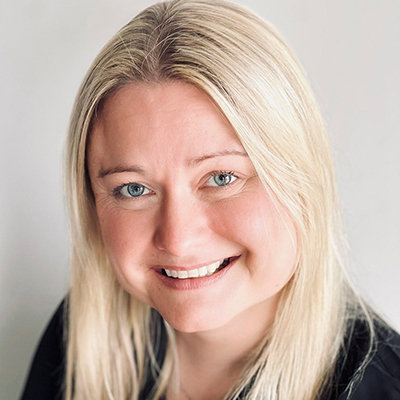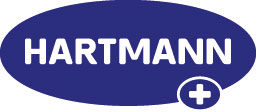Sharon Neill

Sharon is a Lecturer in Adult Nursing and PhD researcher at Ulster University in Belfast, Northern Ireland.
Prior to this, she spent over 10 years working as Tissue Viability Nurse Specialist in the Northern Health and Social Care Trust (NI) where her final 3 years were in the role as Tissue Viability Team Lead. It was during this time she became a member of the Society of Tissue Viability (SoTV) and subsequently elected to the position of trustee. Sharon is also an executive committee member of the NI Leg Ulcer Forum and a Queen’s Nurse.
Sharon is currently the Vice Chair of the SoTV and an active member of the societies strategy and education subgroups.
It was early in her career when she developed a passion for improving the care and treatment for individuals with tissue viability related conditions. Sharon remains committed to creating positive change through the promotion of high-quality tissue viability education programmes and by influencing healthcare strategy and research in this area.
Sharon began her part-time PhD research in 2023 which focuses on the development of a new and innovative pressure ulcer prevention device for use on the lower limb.
Sharon believes that together we can make skin health and wound healing everyone’s business and bring about the changes needed to improve the lives and experiences of those we care for.
Presentations at The Society of Tissue Viability 2025 Conference
“Uniting Expertise,” reaching a consensus on international best practices for wound debridement among Nurses Specializing in Wound, Ostomy, and Continence Canada and the Society of Tissue Viability
Session aimed at:
- Healthcare professionals involved in wound management, particularly nurses and other practitioners who participate in all forms of wound debridement from autolytic to sharp debridement
- The session is also relevant for educators, trainers, and other individuals or organisations interested in establishing standards and improving patient safety in wound care practices
Learning Objectives:
- Participants will gain knowledge of the Best Practice Recommendations established by the Nurses Specialized in Wound, Ostomy and Continence Canada (NSWOCC) and the Society of Tissue Viability, including the key elements that promote patient safety and effective debridement techniques
- Participants will learn how the consensus meeting utilising Delphi methods contributed to the development of fifteen agreed-upon statements regarding wound debridement, and how these can be applied in clinical practice
- Participants will be equipped to integrate the consensus statements and best practice recommendations into their clinical practice, improving the standardisation of debridement techniques and enhancing patient care outcomes in their respective healthcare environments
Abstract
Background: Debridement plays a crucial role in wound management and can enhance patient outcomes. It is essential that debridement is performed by a qualified healthcare professional; however, the standards for practice, credentials, training, competencies, and regulatory guidelines regarding wound debridement can vary. The Nurses Specialised in Wound, Ostomy and Continence Canada (NSWOCC) created Best Practice Recommendations to enhance patient safety regarding all debridement techniques across the continuum of care. These recommendations were designed for widespread adoption by nurses at all levels of expertise throughout Canada.
Aim & Method: To further develop the Best Practice Recommendations for wound debridement, with an international perspective, a consensus meeting utilising Delphi methods was conducted between members of NSWOCC and the Society of Tissue Viability Trustee Board. Once 80 % agreement was achieved, a wide range of wound care experts were identified by the authors and invited to participate in an external review of the statements.
Results: Fifteen consensus statements about wound debridement were agreed upon and are published in the Journal of Tissue Viability. These best practice recommendations have been reviewed by a wide range of practitioners from across the UK and Canada and aim to provide guidance on the standardisation of debridement practices for healthcare professionals.
References: LeBlanc, K., Hill, M., Rajhathy, E., Parslow, N., Greenwood, C. , Swan, J., Neill, S. Farrelly, I., Harley, C. (2024) The development of international Wound Debridement Best Practice Recommendations: Consensus between Nurses Specialized in Wound, Ostomy and Continence Canada and the Society of Tissue Viability. Journal of Tissue Viability (Open Access) https://doi.org/10.1016/j.jtv.2024.07.003
Unlocking potential: Transform your ideas into reality. How can ‘Art’ influence lower limb pressure ulcer prevention and management
Target audience will include:
- Healthcare Professionals directly involved in the prevention and management of pressure ulcers
- Researchers and Academics engaged in research related to medical device design, nursing, patient care, and wider health outcomes
- Designers and Engineers working in medical device design, industrial design, or user experience (UX) design
- Artists, designers, and educators interested in the application of creative methodologies in healthcare
Objectives – attendees will:
- Understand the role of Personalisation in Device Design
- Gain practical insights into the British Design Council’s (2005) Double Diamond Design process
- Be inspired to harness artistic influence and design thinking methodologies to brainstorm and develop innovative healthcare solutions
Abstract
A personalised medicine approach to device design, emphasising customisation for specific patient profiles, presents a unique opportunity to enhance the effectiveness of lower limb pressure ulcer prevention and management devices. By integrating artistic influence and design thinking methodologies, we can prioritise the inclusion of device users, patients, caregivers, and healthcare professionals, collaborating with researchers to address complex challenges in this field. The British Design Council’s (2005) Double Diamond Design process serves as a foundational structure for this multi-phase research study, offering an evidence-based framework for applying design thinking in a research context.
This approach enables a thorough exploration of existing heel-specific pressure ulcer prevention and management devices, identifying design problems and opportunities for improvement. By harnessing the creative potential of art and design, we aim to inspire innovative solutions that cater to the diverse needs of patients. This collaborative process not only enhances device functionality but also fosters a deeper understanding of user experiences, ultimately leading to more effective and user-friendly interventions. Through this transformative journey, we seek to unlock the potential of personalised design in improving outcomes for individuals at risk of lower limb pressure ulcers, paving the way for a future where ideas are seamlessly turned into reality.
Presentations at The SoTV/EWMA 2024 Conference, London
Making a difference: How your learning can lead to sustainable change
Learning objectives
After attending this session, persons will be able to:
- Have the opportunity to reflect on and discuss their learning from the days sessions
- Explore the challenges when trying to implement change within their area of practice
- Consider solutions to the challenges and explore their role in helping to achieve success
- Take away a personal pledge to making a sustainable change in wound prevention & management
Abstract
It is well known that following any educational event, applying that learning in to practice can be challenging and this can be for a number of reasons. Not being able to do this can result in poor job satisfaction, frustration and lack of motivation, but more importantly, not being able to implement new knowledge and skills will prevent the change needed for service improvement and better outcomes for patients.
This session, will allow participants to reflect on their learning from the day and to explore the sustainable change they think is needed within their areas of practice. The facilitators will help identify the barriers to implementing change, and suggest solutions or strategies for breaking these barriers down.
Every participant plays an important role in wound prevention and management and at the end of the session, everyone will be asked to commit to a small sustainable change to their practice in the form of a pledge.
Free Paper Presentation (Research category) at The Society of Tissue Viability 2023 Conference
Healthcare students’ experiences of a Collaborative Online International Learning initiative on wound care and interprofessional education: an exploratory study
Abstract
Background – Interprofessional practice has been identified as essential to designing and delivering health services that are safe, efficient, and sustainable. The importance of effective interprofessional practice is exemplified in the care of a person who has a complex wound, where the expertise of a range of healthcare professionals optimises health outcomes. Effective preparedness of health professional graduates to engage in successful team-working and shared decision-making are profiled as key proficiencies in healthcare programmes (WHO, 2010). In addition, internationalisation of learning offers opportunities to consider the global context of healthcare policy and practice (Mihut et al. 2013). While a range of initiatives are developed to support online or distance learning in wound care and interprofessional learning, there is little evidence of the impact of collaborative online international learning (COIL) in this area (Martinengo et al. 2020). Using a global classroom approach, this study explored healthcare students’ experiences of a COIL initiative on interprofessional practice in complex wound care.
Methods – The study used a descriptive exploratory design. A convenience sample of undergraduate healthcare students from Queensland University of Technology (QUT, Australia) and Ulster University (UU, N. Ireland) participated in a COIL initiative which comprised a 2-hour online global masterclass facilitated by two expert tissue viability nurses. Evaluative data were collected using a post-masterclass anonymous online survey, analysed using descriptive statistics. Four online focus groups were facilitated. Data were audio-recorded, transcribed and analysed using thematic analysis. Relevant ethical approvals were obtained
Results – Sixty-eight students took part in the masterclass and twenty-two completed the post-masterclass survey (QUT n=3; UU n= 19; 32% response rate). Participants reported improvements in their understanding of wound assessment and management and how a range of professionals contribute to wound care, awareness of clinical guidelines in wound care, and increased confidence in wound assessment. Participants also reported positive feedback on the benefits of COIL.
Conclusion – Healthcare students who engaged in an online international, interprofessional education collaboration demonstrated improved understanding and awareness of complex wound care alongside developing insights into interprofessional working and international healthcare policy.
References
- Martinengo, L., Yeo, N.J.Y., Markandran, K, D.O., Olsson, M., Kyaw, M.B., and Tudor Carr (2020) Digital health professions education on chronic wound management: A systematic review. International Journal of Nursing Studies, 104, 103512 https://link.edgepilot.com/s/0cb39bcf/MvucrrOuaE_NiFD3tbAIqQ?u=https://doi.org/10.1016/j.ijnurstu.2019.103512
- Mihut, G., Altbach, P.G. and De Wit, H. (2013) Understanding Higher Education Internationalization. Global Perspectives on Higher Education. Rotterdam: SensePublishers.
- World Health Organisation (2010). Framework for action on interprofessional education and collaborative practice. Available from: https://link.edgepilot.com/s/a65a5b5e/xznz_TIKBECSQqntor2Cmw?u=http://apps.who.int/iris/bitstream/handle/10665/70185/WHO_HRH_HPN_10.3_eng.pdf%3Bjsessionid=3656EDA264650E3DCF7A5CB70C903D47?sequence=1 [Accessed 8th February 2023].
Presentation at The Society of Tissue Viability 2022 Conference
Make presenting your superpower
Objectives
After attending this session, persons will be able to:
- Feel more empowered and confident to present
- Better understand the needs of an audiences and pique their interests not send them to sleep
- Ensure their presentations provide the impact they deserve and learn tips and creative ideas to ensure effective communication and great looking slides
Abstract
It’s quite rare someone will stick their hand up and say they love presenting. It’s often a necessary evil to present your ideas, research or to provide education – but what if there was a way to present differently? For it to be memorable and provide impact, to either empower your audiences to make effective changes in their workplace, or just to simply inspire them.
We’ll help you understand that with some initial planning, thinking and some quick tips and tricks, how you can deliver exceptional presentations no matter what the subject matter or your experience and feel more confident.














